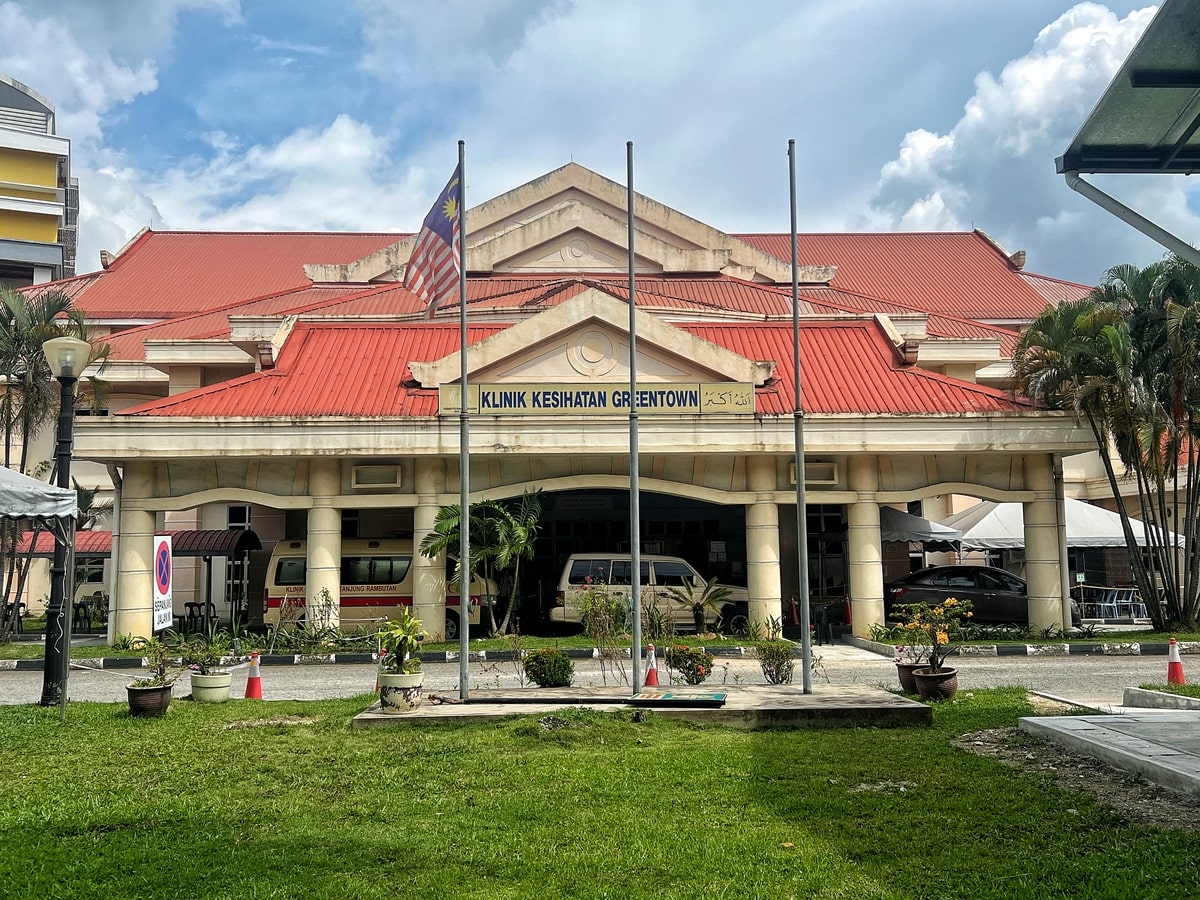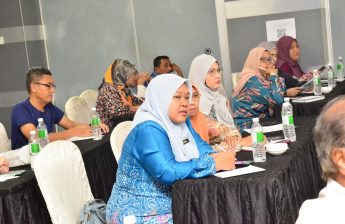In the ever-evolving landscape of health care, Malaysia is making significant strides to enhance its medical services. On 15 June 2023, the Malaysian Parliament passed the Health White Paper (HWP) prepared by the Ministry of Health Malaysia (MOH), which aimed to reform Malaysia’s health systems towards supporting the health and well-being for Malaysians over the next 15 years.
The policy paper sets out a structural reformation plan to respond to Malaysia’s health challenges and to ensure greater equitability, sustainability, and resilience of the health system. Prioritising primary health care is one of important strategies stated in the concept paper to transform health care service delivery.
Primary care is an important element in health care system worldwide. It is the point of first contact of health services. Primary care providers play crucial role in health promotion, early case detection, treatment, and rehabilitation.
Hence, there is a need to equip them with sufficient knowledge and skill to be capable and sharp in coming to provisional diagnosis or at least able to sense symptoms and signs of dangerous situation at patient’s first encounter. Internationally, an ideal ratio of one specialist working in primary care to serve for two thousand population (1:2000 ratio).
Looking at primary care reform that occurred decades ago in developed countries, such as in the United Kingdom and Australia, capacity building is one of many important areas to address. The trainings were conducted by their local colleges, such as the Royal College of General Practitioner (RCGP) in the UK, Royal Australian College of General Practitioner (RACGP) in Australia, and the Irish College of General Practitioner (ICGP) in Ireland.
Currently, the ratio for trained doctors in primary care to population in those countries is 1:1200 in the UK, 1:1000 in Australia, and 1:2500 in Ireland. Comparing such ratio to Malaysia, our country needs 16,000 specialists in primary care to serve thirty-two million population. At present, the figure is still too far to reach.
In 1972, the Malaysian Medical Association appointed a committee to study the feasibility of establishing a College of General Practitioners in Malaysia in order to encourage doctors to further uplift the quality of medical services in primary health care.
In 1973, the government approved the establishment of the College of General Practitioners. In 1978, the College of General Practitioners started a supervised part-time vocational training programme (VTP). Later in 1982, the college, later named the Academy of Family Physicians of Malaysia (AFPM), commenced a conjoint examination with the Royal Australian College of General Practitioners (RACGP).
In early 1990s, there were initiatives to encourage doctors working in primary care in government sector to go for further training pertaining to primary care. A four-year training in family medicine called the Master’s Programme was started. The programme was then conducted and till present, is organised by local public universities.
The first batch of trained primary care physicians graduated in 1997, called Family Medicine Specialists (FMS). FMS are primary care physicians or specialists working in government health clinics and private primary care practices. There are also FMS who work in universities as lecturers in Family Medicine and simultaneously practice as a clinician at the university primary care set up.
The training programme conducted by the AFPM and RACGP is called “parallel pathway”. The AFPM Programme comprises a four-year structure, initially involving a two-year Graduate Certificate in Family Medicine (GCFM), followed by an additional two-year Advanced Training in Family Medicine (ATFM).
Since 2019, another parallel pathway was conducted in Malaysia to produce FMS, organised by the Irish College of General Practitioner (ICGP). The parallel pathway is called Malaysia Ireland National Training in Family Medicine (MInTFM). It is also a structured four-year training programme utilising the ICGP curriculum.
The AFPM-RACGP programme produced 742 FMS in the last 50 years of establishment, while MInTFM had their first batch graduated in November 2023.
To date, there are six local universities conducting the Masters in Family Medicine Programme and two parallel pathways for specialist training in Family Medicine in Malaysia.
Malaysia is aiming to have 8,000 FMS (1 FMS: 4000 population ratio) to provide equitable health care for its growing population of over 30 million. Currently there are around 1,300 FMS in Malaysia; the majority work in government health clinics.
There is a huge discrepancy regarding the FMS: population ratio in Malaysia as compared to developed countries, such as the United Kingdom and Australia.
The Masters’ in Family Medicine Programme produces around 100 to 150 FMS per year, while about 200 FMS are produced per year via the two existing parallel pathways.
Hence, Malaysia might achieve its target figure of 8,000 FMS by the year 2050. On the other hand, if we just rely on the Masters Programme to produce FMS, our country might take much longer to achieve the target number.
This article delves into the importance of parallel pathways and their impact on elevating health care standards in Malaysia.
Addressing Diverse Health Care Needs:
Malaysia boasts a diverse population with varying health care requirements. The specialist parallel pathways play a pivotal role in addressing these needs by offering specialised training to physicians. The AFPM, for instance, focuses on family medicine, ensuring that health care providers are well-equipped to handle a wide array of medical conditions within the context of family and community.
Elevating Primary Care Services:
The cornerstone of any robust health care system is effective primary care. Parallel pathways contribute significantly to elevating primary care services in Malaysia. By providing specialised training for general practitioners, these pathways enhance the skills needed for comprehensive and patient-centered care.
Global Recognition and Standards:
The collaboration with international bodies, such as RACGP and ICGP, aligns Malaysian health care practices with global standards. Thus, this not only ensures that practitioners are well-versed in the latest medical advancements, but also facilitates the exchange of knowledge and best practices on an international scale.
Meeting the Challenges of Non-Communicable Diseases (NCDs):
Non-communicable diseases (NCDs) pose a significant health challenge globally, including in Malaysia. Specialist parallel pathways equip health care professionals with the tools to effectively manage and prevent NCDs. This is crucial for the long-term well-being of the population and the sustainability of the health care system.
Fostering Continuous Professional Development:
Parallel pathways assist in prioritising continuous professional development, fostering a culture of lifelong learning among health care providers. This commitment to ongoing education ensures that practitioners stay abreast of the latest medical breakthroughs, technologies, and methodologies.
Enhancing Patient-Doctor Relationships:
The specialised training provided by these parallel pathways emphasises the importance of establishing strong patient-doctor relationships. By focusing on the holistic well-being of patients, practitioners can contribute to improved health outcomes and patient satisfaction.
Addressing the Rural Health Care Gap:
Specialist parallel pathways are instrumental in addressing the health care gap between urban and rural areas. By training health care professionals to work in diverse environments, these pathways contribute to a more equitable distribution of medical expertise across the nation.
Conclusion:
In conclusion, the establishment of specialist parallel pathways marks a significant step forward for Malaysia’s health care system. These pathways not only elevate the skills of health care practitioners, but also contribute to addressing diverse health care needs, meeting global standards, and fostering continuous improvement.
As Malaysia strives for excellence in health care, the importance of these specialist parallel pathways cannot be denied. They are a beacon guiding the nation towards a healthier and more prosperous future. Hence the need to recognise our doctors as Family Medicine Specialists or Primary Care Physicians through parallel pathways is paramount.
This statement was issued by the Academy of Family Physicians of Malaysia’s council:
- President: Dr Norsiah Ali
- Immediate Past President: Dr Lee Cheng Yew
- President Elect: Dr Isriyanti Mohd Rafae
- Chairman of Council: Dr Kaviyarasan Sailin @ Sailin
- Honorary Secretary: Dr Wong Ping Foo
- Honorary Treasurer: Dr Aishah Mohd Zain
- Dean of Graduate Studies: Prof Dr Sheikh Mohd Amin
- Censor-in-Chief: Dr Anis Ezdiana Abdul Aziz
- Council Members: Prof Dr Kwa Swee Kim, Prof Dr Khoo Ee Ming, Dr Parmjit Singh a/l Kuldip Singh, Dr Rajvinder Singh a/l Mahinder Singh, Dr Samantha Veronica Teh Poh Suan, Dr Sasikala Devi a/p A Amirthalingam, Dr Shamsath Abdul Gafoor, Dr Yeoh Kok Ming, and Dr Ng Shiau Pei
- This is the personal opinion of the writer or publication and does not necessarily represent the views of CodeBlue.






